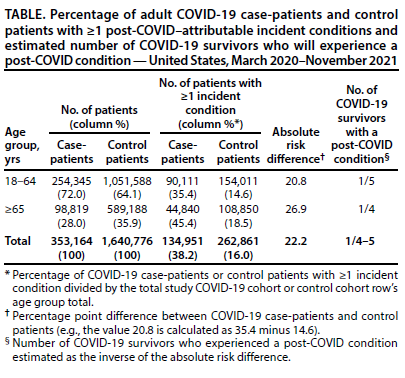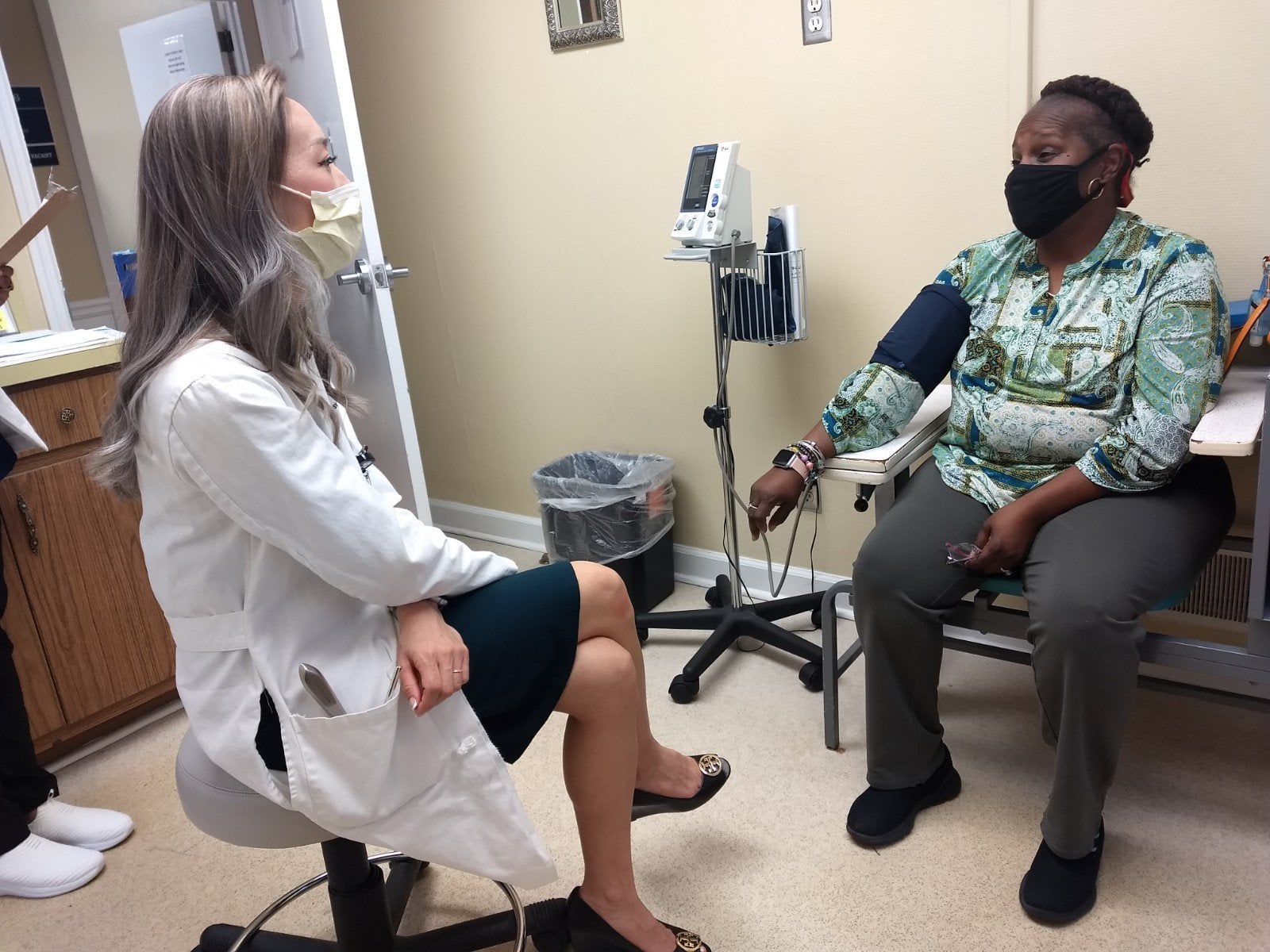The Centers for Disease Control and Prevention has released findings of a study on the long-term impacts COVID-19 has on patients who survived the virus.
The study looked at COVID-19 patients aged 18 and older. That was broken down into two age groups, aged 18-64 and age 65 and older. Data was collected between March 2020 and November 2021 and then analyzed for what has been termed Long COVID.
MORE: State health board approves extended Medicaid coverage for new mothers
Health concerns associated with Long COVID include conditions that affected multiple systems, and included cardiovascular, pulmonary, hematologic, renal, endocrine, gastrointestinal, musculoskeletal, neurologic, and psychiatric signs and symptoms.
“Among those aged 18–64 years, 35.4% of case-patients experienced an incident condition compared with 14.6% of controls. Among those aged 65 years and over, 45.4% of case-patients experienced an incident condition compared with 18.5% of controls. These findings translate to one in five COVID-19 survivors aged 18–64 years, and one in four survivors aged 65 years and over experiencing an incident condition that might be attributable to previous COVID-19,” read the report.

The Medical College of Georgia launched a program called COVID-19 Neurological and Molecular Perspective Cohort Study in Georgia, or CONGA, about a year ago.
Dr. Elizabeth Rutkowski, a neurologist who is part of the study team, said they are focusing more on the neurological aspects, which include brain fog, headaches, some mood disturbance and they are starting to get results from the some of the first people who enrolled.
She said some studies showed that people who have never been infected are suffering neurological symptoms just because of living through the pandemic.
“But there’s pretty recent evidence, as in the last few months, have been published in Nature and Nature Medicine, where they’ve shown that people’s brains are shrunken if they’ve had COVID. They did a very large study where they did volumetric data on MRI scans of people that had had scans before the pandemic,” she said. “Then, those who are documented positives have less volume in the regions of the brain that we always suspected were involved with the symptoms that people are experiencing.”
MORE: A new approach to an ugly problem
The CDC study found that post-COVID conditions occur in up to 30% of patients. The severity and illness duration can also impact a patient’s ability to work, and that can have an economic impact on patients and their families.
Rutkowski said they are seeing some instances of that happening with participants in the local study.
“A lot of the patients in our group say that they have a hard time with multitasking, processing complex things. And many of them have actually had to take short term or long-term disability from their jobs, because they cognitively can’t keep,” she said. “So, there’s a lot of data that there is pretty conclusive evidence that those that are infected are suffering from very severe long-term issues and brain atrophy which is that shrinkage. And one study that even showed it having COVID is similar to having aged your brain by 20 years.”
MORE: New diabetes drug approved by the FDA
Rutkowski said the study program has been community-based and outreach focused, adding she’s grateful to the community’s participation even before the local study began.
“Early on in the pandemic, we had nothing to offer our participants before we got funded. So, they would just come in under the kindness of their heart and to help us as a scientific community learn more. And now, through those efforts, a lot of our community philanthropists have also continued funding for this study,” she said.
The program had received $308,000 in emergency COVID-19 funding from the National Institutes of Health to fund the first year of the study.

In early June 2021 three local philanthropists, TR Reddy and his wife Dr. Anjiji Reddy, Jim Hull, chair of the AU Health System Board and member of the Georgia Board of Regents, and Ronnie Powell, owner of Powell Construction in Appling, added another $300,000. Other members of the Reddy family have also committed to help fund the study.
At least 355 people have signed up for the CONGA study. Rutkowski said about 40% of those enrolled are African-American. They hoped for 50%
“We want to know how it impacts this specific community. And there are very few tests and studies nationally and internationally that have our specific demographics,” she said. “I’ve seen a lot of studies where they have 6% of patients of African descent and what I know is that they seem to be hit very, very hard by lots of different medical diseases but COVID as well, and I want to know how we can best serve them.”
The CDC study focused specifically on age. It did not include information based on sex or ethnicity, nor for vaccination status, because of missing or inconsistent data.
Rutkowsky said healthcare professionals are still lacking any forms of treatment for the myriad Long COVID health concerns. She said the NIH has started a study specifically looking for treatment options.
That study is set up in 90 sites over 30 states, including at Emory and the Morehouse School of Medicine in Atlanta and the Medical University of South Carolina in Charleston. Details of the NIH study are available at: https://recovercovid.org/
Locally, CONGA hoped to enroll 500 participants when it launched last year. Rutkowski said they are still accepting participants and particularly hope to get more African-American patients to join.
To find out more about the MCG CONGA study, or enroll as a test subject, email CONGA@augusta.edu.
Dana Lynn McIntyre is a general assignment reporter for The Augusta Press. Reach her at dana@theaugustapress.com












